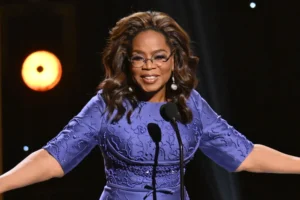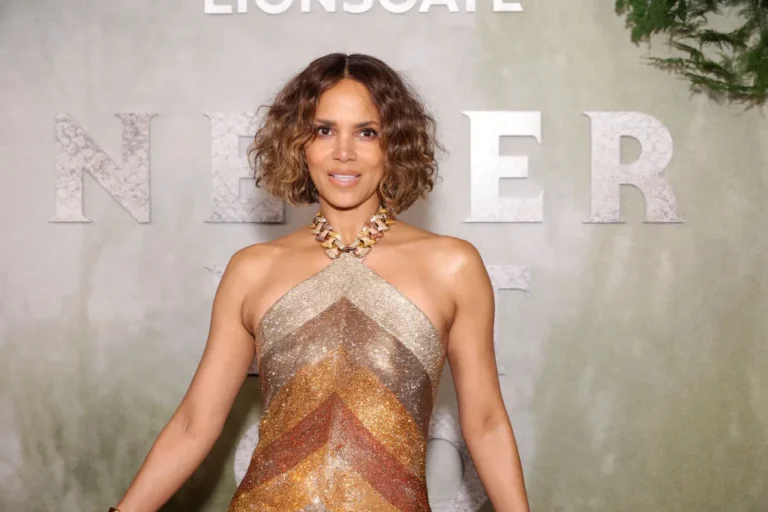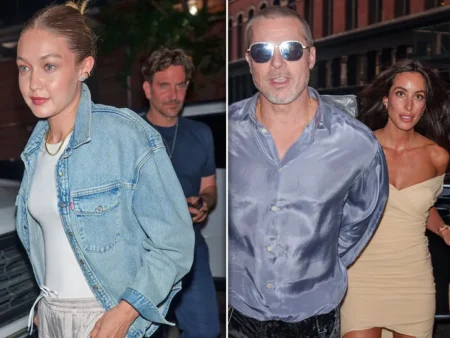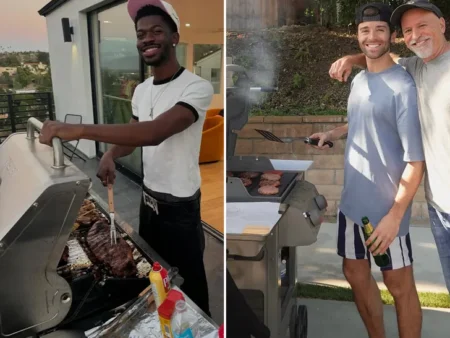Two cultural icons—Halle Berry and Monica Lewinsky—sparked laughter and introspection across social media this weekend after engaging in a playful exchange about their frequent appearances in hip-hop lyrics.
It all started when Halle Berry, 57, responded to a viral tweet that tallied how often her name has been mentioned in rap songs. Known for her beauty, Oscar-winning talent, and influence across generations, Berry took the attention in stride and tweeted:
“And I appreciate each rap song reference. What are you guys’ favorite?”
Her post quickly lit up X (formerly Twitter), prompting fans to recall memorable lyrical nods from artists like Kanye West, Kendrick Lamar, and J. Cole—many of which highlight Berry’s beauty, allure, and status as a pop culture icon.
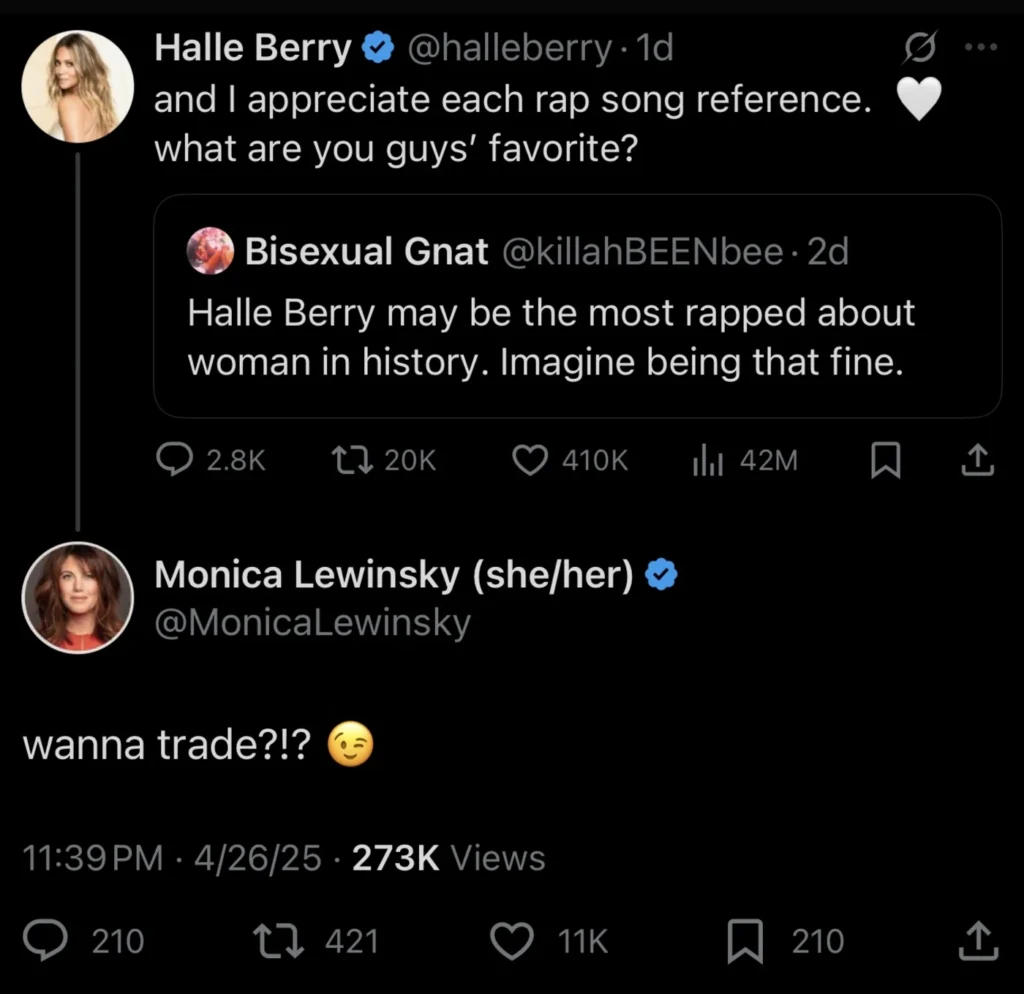
Monica Lewinsky Jumps In: “Wanna Trade?!”
Then came a humorous interruption from Monica Lewinsky, 51, whose name has also been famously immortalized in dozens of rap songs—but in a far less flattering context.
“Wanna trade?! 😉” she replied, adding a cheeky winking emoji that had the internet howling.
Lewinsky’s name has been referenced in hip-hop lyrics since the late 1990s, almost exclusively in relation to the highly publicized scandal involving former U.S. President Bill Clinton. Unlike Berry’s glamorous associations, Lewinsky’s lyrical mentions are often used as double entendres or punchlines related to sex or scandal.
In her 2015 TED Talk, Lewinsky guessed she had been mentioned in about 40 rap songs—but a report by The Cut the same year found her name appeared in at least 128 tracks, not including remixes. Some of the most notable mentions include:
- Beyoncé in “Partition”
- Eminem in “Rap God”
- Nicki Minaj in “Itty Bitty Piggy”
A Tale of Two Legacies: Beauty vs. Infamy
While both women have become lyrical shorthand in hip-hop, the meanings behind their mentions couldn’t be more different.
Halle Berry’s name typically evokes admiration and desire. In a 2023 interview on Hot Ones, Berry commented on the frequent musical shoutouts, saying:
“I think of these references like my children. There’s no way I could pick one. I love them all.”
Her lyrics often celebrate her status as a timeless symbol of Black excellence and feminine allure. On the other hand, Monica Lewinsky’s references tend to focus on the sexual scandal that defined her early public life—an experience that led her to become a prominent anti-bullying activist and cultural commentator in later years.
Despite the contrast, Lewinsky’s lighthearted response shows how far she’s come in owning her narrative. By joking about trading places with Berry, she exhibited self-awareness, resilience, and a touch of sarcasm—qualities that have earned her a dedicated online following.
Fans React: Humor, Healing, and Hip-Hop History
The viral exchange triggered a mix of reactions—some humorous, others reflective. Many praised Lewinsky for her wit and strength in turning past trauma into moments of levity, while others applauded Berry for continuing to embrace her iconic status with humility and class.
“Monica Lewinsky joking about her name in rap songs shows incredible growth. From public shaming to owning her story—respect,” one user wrote.
“Halle Berry and Monica Lewinsky being two of the most name-dropped women in rap says a LOT about hip-hop and pop culture,” another tweeted.
The moment offered fans a chance to revisit some of the most memorable bars from rap’s history—revealing how artists often use real-life figures as shorthand for larger themes like power, scandal, desire, or elegance.
Final Thoughts: Two Icons, Two Narratives, One Viral Moment
In a landscape where celebrity and lyricism often intersect, Halle Berry and Monica Lewinsky remain two of the most name-checked women in hip-hop—each representing vastly different cultural narratives.
Berry, as the embodiment of Hollywood beauty and Black excellence, is usually celebrated in song. Lewinsky, whose name was once weaponized for ridicule, is now flipping the script—one cheeky tweet at a time.
Their recent exchange isn’t just amusing; it’s a snapshot of how pop culture, feminism, and hip-hop collide—and how women are reclaiming the ways their names are used in the spotlight.

